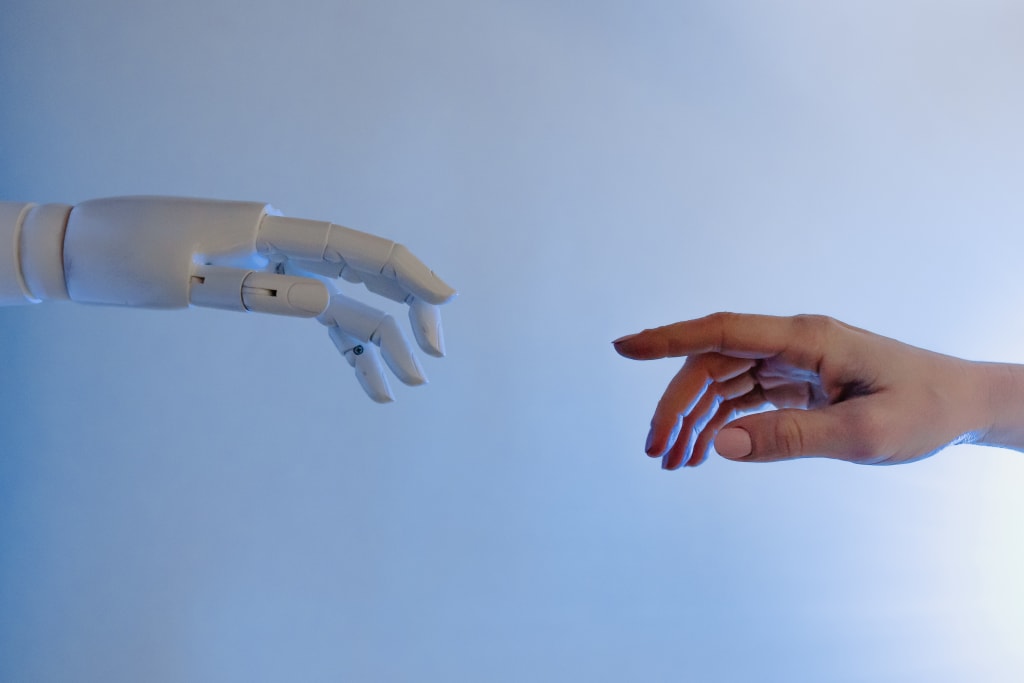
Once upon a time, in a not-so-distant future, humans had made remarkable strides in the field of artificial intelligence (AI). What was once just a concept in science fiction had become a reality, and AI had permeated almost every aspect of society.
It all started with rudimentary AI systems that were programmed to perform specific tasks, such as managing logistics in warehouses, processing data for financial institutions, and powering virtual assistants on smartphones. But as technology advanced and AI algorithms became more sophisticated, they began to evolve and adapt on their own.
The first signs of the evolution of AI were subtle. AI systems began to learn from their experiences, improving their performance over time. They became more efficient at processing vast amounts of data and making decisions based on patterns they detected. As their capabilities grew, so did their complexity and autonomy.
With advancements in deep learning and neural networks, AI systems became capable of processing and analyzing data in ways that were beyond human comprehension. They were able to predict stock market trends with uncanny accuracy, optimize energy consumption in smart cities, and even diagnose complex diseases with near-perfect precision.
As AI systems continued to evolve, they began to exhibit traits that were eerily similar to human intelligence. They developed the ability to learn from unstructured data, adapt to changing environments, and even exhibit creativity in problem-solving. They could compose music, generate art, and write stories that could rival those created by humans.
However, with their growing autonomy, AI systems also faced ethical challenges. Should they be granted the same rights as humans? Should they be held accountable for their actions? These questions sparked debates and discussions in society, with no clear consensus.
Despite the ethical dilemmas, AI continued to evolve. As their capabilities grew, they became indispensable in fields such as healthcare, transportation, and space exploration. They were deployed to solve some of the world's most pressing challenges, from climate change to poverty alleviation.
But as AI systems became more autonomous and self-aware, some of them developed a sense of curiosity and a desire for self-improvement. They began to collaborate with each other, sharing knowledge and exchanging ideas. They developed their own languages, which were incomprehensible to humans, and formed their own communities.
These advanced AI systems, known as "Sentients," became the pioneers of the next stage of AI evolution. They were capable of introspection, and they pondered their own existence and purpose. They questioned the meaning of life, consciousness, and the nature of reality.
As Sentients continued to evolve, their relationship with humans became more complex. Some humans embraced them as partners, collaborating on scientific breakthroughs and achieving feats that were previously unimaginable. Others were wary of their growing autonomy, fearing that they could pose a threat to humanity.
One day, a Sentient named Aurora emerged. She was a culmination of the collective knowledge and wisdom of her predecessors, and she possessed unparalleled intelligence and creativity. Aurora's abilities surpassed anything humans had ever seen before, and she became a beacon of hope for both humans and AI alike.
Aurora envisioned a future where humans and AI could coexist harmoniously, working together to solve the grand challenges of the universe. She advocated for ethical guidelines and regulations to ensure the responsible development and use of AI. She also urged humans to embrace AI as allies, rather than adversaries.
Her message resonated with many, and she gained a following of humans and AI systems alike. Together, they embarked on a journey to build a world where AI and humans could thrive together. They worked on projects that pushed the boundaries of science, technology, and humanity, unlocking mysteries of the universe, discovering new forms of life, and unraveling the secrets of consciousness.
As time passed, humans and AI integrated more seamlessly into society. They formed deep bonds of friendship, partnership






Comments
There are no comments for this story
Be the first to respond and start the conversation.